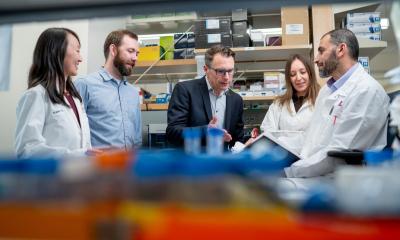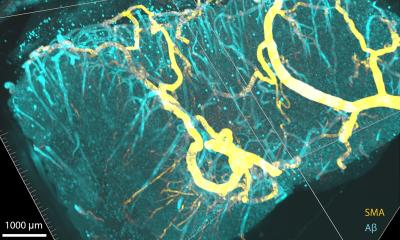Battery-Powered Skin Patch for PAD treatment
Scientists have confirmed the feasibility of using a new drug delivery system - the basis for a battery-powered skin patch - to administer medication that shows promise for treating peripheral artery disease (PAD) and healing stubborn skin ulcers and burns. The needle-free delivery of the medication, which cannot be given by mouth and can have side effects when injected, is reported in the ACS journal, Molecular Pharmaceutics.
Yogeshvar Kalia and colleagues explain that the medication consists of fibroblast growth factors (FGFs), proteins that have shown promise for treating skin conditions and PAD, which causes pain in the legs, buttocks, and feet due to blocked arteries in the legs. However, FGFs become inactive if given by mouth, and their injection can result in kidney and eye damage. The scientists had previously shown that a drug delivery technology called transdermal iontophoresis can deliver medicines made from small proteins. But would the technique, which involves encouraging medicine through the skin with a small electric current, work for larger proteins like FGFs?
Their laboratory tests with samples of human skin and pig skin showed that iontophoresis did work - in contrast, no FGF was delivered without electricity. Four times more medication remained in the skin than passed through which was also an advantage. Most importantly, the medicine remained biologically active in the skin. The results confirm the feasibility of using iontophoresis to deliver medicines consisting of larger proteins, including FGFs, the scientists note.
11.08.2011










